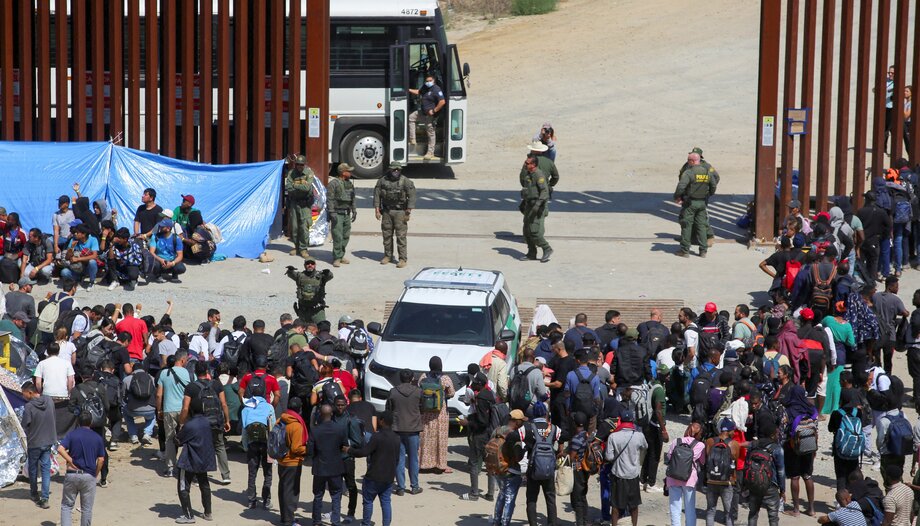From September 18 to 24, the Church in the USA commemorates National Migration Week (NMW), which culminates and ties in with World Migrants and Refugees Day to be celebrated on September 24. The goal of NMI is to encourage reflection on the challenges faced by migrants, especially those who migrate due to social and political conflicts or tensions.
The SMN also seeks to emphasize the ways in which migrants enrich the communities where they arrive. On this occasion, many dioceses in the country will have Masses, days of reflection and prayer related to migration.
Free migration
The theme that will guide the SMN is the one used by Pope Francis for the World Day of Migrants: "Free to choose whether to migrate or to stay". If a person decides to migrate, he or she must do so freely, by choice and not out of necessity, the Holy Father points out: "For migration to be a truly free decision, it is necessary to strive to guarantee everyone an equal share in the common good, respect for fundamental rights and access to integral human development. Only in this way will it be possible to offer everyone the possibility of living in dignity and fulfilling themselves personally and as a family" (Message of the Holy Father for the 109th World Day of Migrants and Refugees).
In this sense, the bishops of Mexico and the United States say in a pastoral letter: "all people have the right to find in their own countries the economic, political and social opportunities to live with dignity and to have a full life" (Pastoral Letter "Together on the path of hope. We are no longer strangers". January 2, 2003).
The situation in the United States
Ideally, migratory flows should be a decision and not a necessity. However, the reality presents a different picture. According to the UN International Organization for Migration, there were 281 million international migrants by 2020. Of this total, more than 100 million migrated not by choice, but forced because of warsThe United States has been and continues to be a destination country for thousands of migrants, especially from Mexico and Central America. For historical, geographic and economic reasons, the United States has been and continues to be a destination country for thousands of migrants, especially from Mexico and Central America. Some 13.6 percent of the U.S. population was born outside the country and millions of residents are naturalized each year.
Although documented migration is much higher than undocumented migration ─in 2019 there were 2.5 million visitors and people who entered with the necessary permits─ thousands of people seek to enter without papers. In 2021 alone, U.S. Border Patrol authorities apprehended 1.6 million undocumented immigrants. Conservative estimates suggest that there are 12 million people in the country living in the shadows of the law, without documents.
The current U.S. immigration system, which dates back to 1986, has been overwhelmed by the unprecedented number of migrants who in recent years have tried to enter the U.S. without documents, which represents a greater risk for the person trying to do so. In 2022 alone, 853 people died trying to cross into the U.S. by swimming across the Rio Bravo, walking for hours (even with children) through the desert, without water and under temperatures of more than 50 degrees, or trying to go through inhospitable places with little surveillance by U.S. authorities.
Mark J. Seitz, Bishop of El Paso, Texas and chairman of the U.S. Conference of Catholic Bishops' Committee on Migration, noted: "As believers, we are compelled to respond with charity to those who have uprooted their lives in search of refuge. Efforts to manage migration, even when based on the common good, require that we address the forces that drive people to migrate. Only through collective efforts to alleviate these situations and by establishing the conditions necessary for integral human development will people be able to assert their right to remain in their country of birth."








